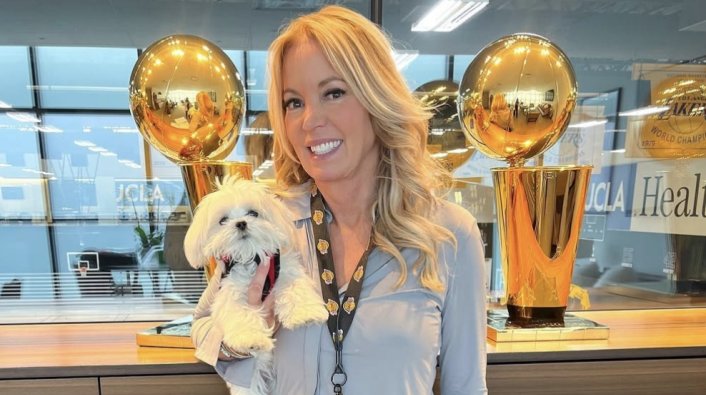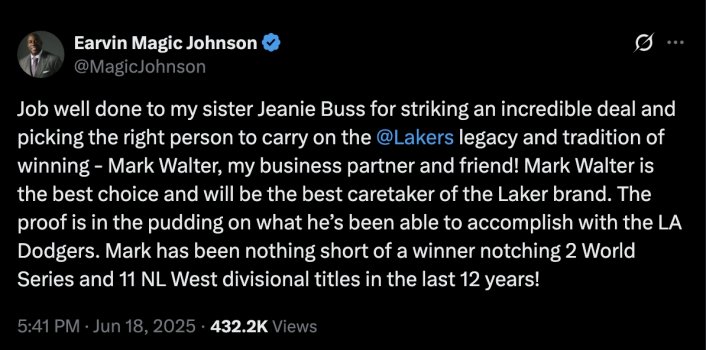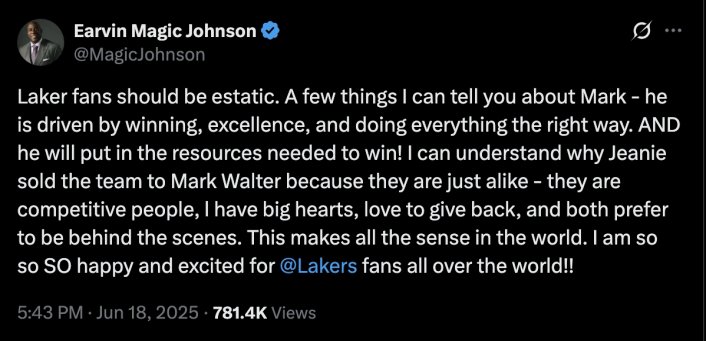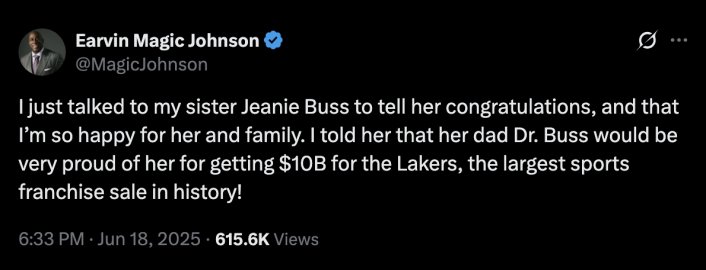The Buss family has reportedly agreed to sell their majority ownership of the Los Angeles Lakers to billionaire investor Mark Walter, in a deal that values the iconic NBA franchise at approximately $10 billion—the highest valuation ever for a U.S. professional sports team.
Despite the sale, the Buss family will retain over 15% minority ownership, and Jeanie Buss is expected to continue running the team for several more years, according to a source who spoke with ESPN. The move has the backing of Walter, who has been a minority stakeholder in the Lakers since 2021.
Walter is the CEO of TWG Global, a diversified holding company with ownership stakes in several high-profile sports organizations, including the Los Angeles Dodgers, Los Angeles Sparks, Premier League club Chelsea, and the Professional Women’s Hockey League.
The Buss family has owned the Lakers since 1979, when the late Dr. Jerry Buss purchased the franchise from Jack Kent Cooke for $67.5 million. Under the family’s stewardship, the Lakers have become one of the most successful and recognizable franchises in NBA history, winning 11 championships since 1980.
Lakers legend and Walter's business partner, Magic Johnson, voiced strong support for the transition, calling it a "great move" for the franchise. In a statement posted on X (formerly Twitter), Johnson said:
“Mark Walter is the best choice and will be the best caretaker of the Laker brand. The proof is in the pudding on what he's been able to accomplish with the LA Dodgers—2 World Series and 11 NL West divisional titles in the last 12 years!”
He added, “A few things I can tell you about Mark—he is driven by winning, excellence, and doing everything the right way. AND he will put in the resources needed to win! I can understand why Jeanie sold the team to Mark Walter because they are just alike—competitive people, big hearts, love to give back, and both prefer to be behind the scenes. This makes all the sense in the world.”
The sale signals a monumental shift for the Lakers, one of the NBA’s most storied franchises, and raises questions about how ownership dynamics might evolve in the coming years.
Source: ESPN





